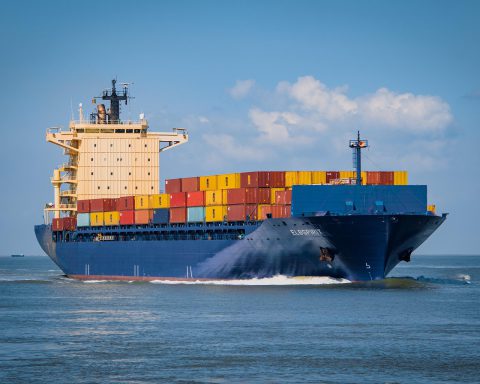This March, LeipGlo columnist Harald Köpping lamented the decline of Handwerk shops. Just like him, I prefer bread from Handwerk bakeries, because it does taste much better than the one from the supermarket.
But bread from Wendel, Steinecke or Lukas, by the way, is not at all bad either. Contrary to what Harald suggests, the fact that each of those bakeries runs more than one branch doesn’t mean the quality – and the prices – of their products are as low as what you find at Aldi or Lidl.

Be that as it may, the main issue I take with Harald’s noteworthy piece – and the reason for me to reply – is how he explains the decline of Handwerk shops. His culprit is “neoliberalism.”
Unfortunately, he doesn’t tell us what exactly he means by that complex label. And whatever it may be, in my view, the decline’s causes are so simple that in their context we don’t need to resort to “neoliberalism” – or any other of those buzzwords that in today’s debates are often enough hurled at people without being necessary or helpful.
In contrast to “neoliberalism,” the decline of crafts (let this be our translation for Handwerk) is not new.
In general, crafts come, stay for a while, and go. When they go, it’s often because technological progress puts the things they produce out of use.
For example, during the 20th century, the craft of the wheelwright, who makes wooden wheels for carriages, practically disappeared. That is because almost all wheels ended up being made of metal, which is more solid than wood.
In German, one of the names for “wheelwright” is Wagner, which in German speaking countries still is a frequent surname (think of famous Leipzig-born composer Richard Wagner). That means that there used to be many people from that craft here – whereas today, many people don’t even remember the surname’s origin.
Alternatively, crafts decline because industries emerge that produce respective things in a way cheaper than the crafts’ manual, small-scale way of production. For example, flour today is no longer produced by a miller in a windmill, but by machines in an industrial plant.

In German, the name for the old craft, Müller, continues to be the most frequent surname. Nevertheless, the people who operate industrial mills don’t have much in common with their pre-industrial forefathers, and continue to be called “miller” out of mere nostalgia.
Millers lead us to bakers, who turn the former’s flour into bread.
Bakers seem to belong to the second group of crafts we have defined. Bread still is an indispensable good – all the more so in Germany, with its unique bread culture. What threatens bakers is – as Harald describes – the cheap industrial bread sold by supermarkets. Harald blames this on “neoliberalism.”
However, that non-industrial companies are supplanted by industrial ones also is far from new. Look at the windmills, or the shops of shoemakers, or the grocer’s shops that sold you their articles over the counter. The process goes back at least to the 19th century and is first of all, once again, due to technological progress, mechanization, and yes, in a further step, also to the free trade mentioned by Harald.
It may be true that the latter’s extent today is as high as never before. As a result, supermarkets can have their bread baked in Poland for cheap and sell it in Germany at German prices.
Bakeries could rightfully complain about this and how “neoliberalism” in the sense of highly unchecked, transnational trade aggravates it. Yet if they do so, they shouldn’t forget about an additional factor that Harald completely omits, even though it’s contained in his term “neoliberalism.”
In the literal sense, “liberal” means “free.” The term carries no restriction, so in a “liberal” (or “neoliberal”) economy, freedom applies not only to production, but also to consumption – that is, customers. They decide where to buy, and where not to. In the case of today’s Handwerk bakeries, they tend to opt for the latter.
According to Harald, they do so because “neoliberal capitalism” “imposes” it on them. If this was true, that kind of capitalism wouldn’t be “liberal.” In fact, customers decide freely insofar as only some of them are restrained – not by “neoliberalism” or other obscure forces, but simply by their budget, which may not suffice for certain prices.
Harald states, “Many of us are tired of the anonymity of supermarkets and online stores.” By saying so, however, you reveal that you have amply used supermarkets and online stores – otherwise you wouldn’t be tired of them. And by using those facilities, you have contributed to the success you are now complaining about.

So you should actually complain about yourself.
On the one hand, there are those consumers who earn even less than Harald’s small bakers. It’s no wonder that they buy their loaf of bread for one euro from the supermarket rather than for three euros from a Handwerk bakery – the latter charges three times as much! The baker can’t blame them, but conversely, those customers do benefit from supermarkets, because otherwise they could afford no bread at all.
Mechanization and free trade certainly have disadvantages. At the same time, they have allowed many more people to buy much more (and better) food. Look at the statistics. In the middle of the 19th century, Germans spent more than 60 percent of their income on groceries; today, it’s below 15 percent.
Moreover, thanks to discounters like Aldi and Lidl, which have both been active for decades and spread over the whole country, groceries in Germany are on average cheaper than in any other industrial country. That’s why Walmart, the U.S. retail giant, failed in its attempt to enter the German market in the 1990s / 2000s: its prices – though famously low – couldn’t compete with Germany’s old-established, extraordinary discounters.
On the other hand, there are many consumers who do have the money to buy from Handwerk bakers, but don’t go there anyway. Are you such a person as well? In any case, bakers – and Harald – should complain about those consumers as much as about industrial producers.
They could afford the three euros for a loaf of bread, but are too stingy, or too lazy to make the extra tour to the baker after having bought all other groceries at the supermarket.

Also, the latter’s anonymity doesn’t seem to bother them. They may even enjoy it, because, to pick up Harald’s examples, if they wish to have conversations about “the health of their cat” or “the progress they’ve made with their German,” they don’t necessarily wish to have them inside supermarkets or bakeries.
Is “neoliberalism” to blame for such a behavior? I don’t think so. It’s a result of human psychology. Likewise, on the producing side of the story, few things happen today that haven’t happened before.









